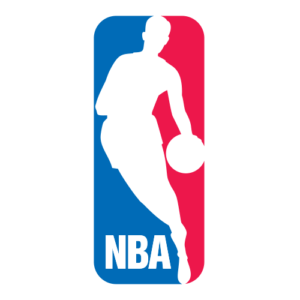For the second year in a row, the NBA and Stanley Cup finals play out in entirely different worlds.
Despite the fact that 13 cities in the United States and Canada are home to both NBA and NHL teams, all four cities hosting the two championship rounds are singular winter-sport locations. There is no NHL in Oakland and Cleveland, and despite a splendidly horrible 1970s basketball movie to the contrary, the NBA has no home in Pittsburgh. Or Nashville, for that matter.
As it happens, an NBA-NHL finals playing out in the same arena in the same year is actually quite rare in sports history. Only eight times in the 71 years since the inception of the NBA has one city been host to both finals in the same year. And those host cities are 0-for-8 when it comes to winning both titles.
Here is a look at the eight seasons an arena became championship central:
2003 – Continental Airlines Arena (Nets, Devils)
As hard as it might be to believe, there actually was a time when the Nets not only reached the NBA Finals, they did it twice in a row! Led by the likes of Jason Kidd and Richard Jefferson (still playing in the Finals in 2017 with the Cavs), the Nets dominated the Eastern Conference in 2002 and ’03, actually taking the mighty Spurs to six games in the 2003 Finals.
A more likely finalist in the early 2000s, the Devils, led by wondrous goalie Martin Brodeur, were making their third trip to the Stanley Cup Finals in four seasons and fourth appearance since 1995. And while the Nets fell short of their championship dreams, the Devils raised their third Cup in franchise history with a Game 7 victory at Continental Arena on June 9, the night after the Nets lost Game 3 at home to the Spurs.
1994 – Madison Square Garden (Knicks, Rangers)
For all the grand sports history in New York City, there may not have been a more-dramatic three weeks than what gripped Gotham in late May/early June, 1994.
For the Rangers, it was the merciful end of a 54-year championship curse that plagued the franchise since its last Stanley Cup victory in 1940. The chants of “19-40!” rained down on long-suffering Rangers fans until Mark Messier guaranteed victory over those pesky Devils in Game 6 of the Eastern Conference Finals, then backed it up with a hat trick. In Game 7 at the Garden, Stephane Matteau scored in double-overtime as Howie Rose screamed his name three times across the New York airwaves, sending the Rangers to meet the Canucks in the Finals. Finally, at long last, with Brian Leetch and Mike Richter teaming with “the Messiah,” the Rangers won Game 7 at a delirious MSG on June 14 to clinch the Cup.
For the Knicks, it was the first trip to the Finals in the Patrick Ewing era – aided by the “retirement” of Michael Jordan – and the night after the Rangers won the Cup, the Knicks evened their series with Houston at 2-2. Game 5 was also at the Garden on June 17, 1994, and the Knicks won to go ahead 3-2. You don’t remember? Understandable. That was the night an erstwhile white Ford Bronco made a police-escorted slow drive across Los Angeles as the game played in New York.
It would never get better for the Knicks. The Rockets went home and won Games 6 and 7, with John Starks shooting a gruesome 2-for-18 from the field, including 0-for-10 on threes.
1992 – Chicago Stadium (Bulls, Blackhawks)
Michael Jordan won six titles with the Bulls, but only once during his championship reign did Jordan share the Chicago stage with the Blackhawks. That came in 1992, when Jordan was just beginning his run of titles – 1992 would be the second of the six – and nearly 20 years before the Blackhawks would enjoy their own dynastic run of three titles in five seasons.
The 1992 NBA Finals would be remembered for one moment, one reaction, and it was all Jordan, who unloaded on the Portland Trail Blazers with 35 points in the first half of Game 1 at the Stadium. He punctuated his sixth three-pointer of the half with an iconic shrug to the NBC broadcasting crew at center court.
The Bulls would return to the Stadium for Game 6 where they closed out the championship, the last title celebration the old barn would see before closing its doors in 1994.
The Blackhawks had not been to the Stanley Cup Finals since 1973, and had not won it since 1961, but thanks to the mini-dynasty in Pittsburgh, led by Mario Lemieux, the Blackhawks were swept in the Finals, with the series ending in Game 4 at the Stadium two days before Jordan’s Game 1 rampage.
1980 – The Spectrum (76ers, Flyers)
In the the eight seasons that the same building hosted both finals in the same year, only three times did both occupants lose their respective series. The final such occasion took place in Philadelphia. It would be the outdoor team, the Phillies, who would salvage the year by winning the World Series that October. Then the 1980 Eagles reached the Super Bowl, capping what was arguably the greatest single season in any city’s sports history.
The 1980 NBA Finals would be remembered for two moments, both coming at the Spectrum, one to start the six-game series against the Lakers, the other to end it. In Game 1, it was Dr. J, Julius Erving, who delivered arguably his greatest basket in a Hall of Fame career loaded with high-wire acts. Driving the baseline against three Lakers defenders and forced under basket after picking up his dribble, Erving defied gravity and geometry by ducking under the basket and scooping the ball off the glass on the opposite side for a spectacular two points.
The Lakers got the last laugh in the series, winning Game 6 at the Spectrum to clinch the first title of the Magic Johnson era. And it was literally all Magic in that final game. With Kareem Abdul-Jabbar out with an ankle injury, Magic started at center and the rookie finished with 42 points, 15 rebounds and seven assists.
The Flyers ran into their own budding dynasty in the 1980 Stanley Cup Finals, becoming the first of four straight teams to be vanquished by the New York Islanders. In another thrilling six-game series, the Flyers won 2 of 3 games played at the Spectrum, including a victory in Game 5 to cut their series deficit to 3-2. But in a classic Game 6 on Long Island, Bobby Nystrom clinched the cup with an overtime goal.
1974 – Boston Garden (Celtics, Bruins)
Despite the Celtics (21) and Minneapolis/Los Angeles Lakers (31) having made the most appearances in the NBA Finals, only the Celtics have played in the Finals in the same year as their NHL arena-mates, and even then, the Celtics and Bruins have only done it once in the past 60 years, since accomplishing the feat in each of the first two years of the Red Auerbach/Bill Russell dynasty (see below).
That one year was 1974, when Dave Cowens patrolled the paint and Tommy Heinsohn have moved from player to coach. The Celtics beat the Milwaukee Bucks in a seven-game thriller, but the series was best known for a double-overtime drama in Game 6 at the Garden, ultimately decided by a Kareem Abdul-Jabbar skyhook.
The Bruins took on the Philadelphia Flyers in the Stanley Cup Finals and lost to the Broad St. Bullies in six games. While the series itself was unremarkable, it did prove to be the last Finals appearance for legendary Bruins defenseman Bobby Orr.
1972 – Madison Square Garden (Knicks, Rangers)
The 1972 Knicks and Rangers became another of the tandems of same-city teams to reach the NBA and NHL Finals in the same season, only to lose both series. For the Rangers, it was just 32 years into their infamous “19-40” curse, losing to of all teams, their hated rivals from Boston. Interestingly, although the Rangers would appear in the Finals five times between 1933-50, this would be just the first time since 1929, also against the Bruins, that all of the Rangers’ home games in the Finals would actually take place in Madison Square Garden. In each of the previous five Finals appearances, the Rangers shared the Garden with the circus and played “home” games in other arenas.
But playing at MSG was of no advantage in 1972, as the Bruins won Game 4 and the clinching Game 6 on Rangers’ home ice.
The Knicks were making the second of three Finals appearances in the span of four seasons, having beaten the Lakers in the classic 1970 Finals with an injured Willis Reed playing in Game 7 to inspire a series-clinching rout. But in 1972, the 69-win Lakers exacted revenge, winning four straight games – including Games 3 and 5 in the Garden — after dropping the series opener.
1957-58 – Boston Garden (Celtics, Bruins)
Fans in Boston have enjoyed an amazing run of championships across all its professional teams over the past 16 years. But that tradition actually began in Boston in 1957 and ‘58, when the Celtics and Bruins reached their respective Finals in consecutive seasons, the only time in NBA/NHL history that teams from the same city reached consecutive finals in both sports.
However improbable, the two times combined for just one championship out of the four combined appearances. That would be the 1956-57 Celtics, led by a rookie center named Bill Russell, along with guards Bob Cousy and K.C. Jones. The Celtics beat the St. Louis Hawks in the most dramatic Game 7 in NBA Finals history, going to double-overtime before the Celtics prevailed. The Hawks would get its revenge in 1958, taking advantage of an injury to Russell that forced him out of two games, allowing the Hawks to escape with a six-game series win.
The Bruins had much less drama in two series losses to the Montreal Canadiens, led by Maurice “Rocket” Richard, losing in five games in 1957 and six games in ’58.
This article first appeared in the Arena Digest weekly newsletter. Are you a subscriber? Sign up here for a free subscription!


